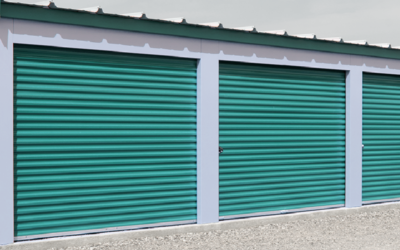Within the commercial real estate market, the self-storage industry stands out from the crowd. With its seeming immunity to economic fluctuations, the self-storage sector rode out the Great Recession, a global pandemic, and supply-chain disruptions and is currently seeing an upswing in new construction and expansion. Industry newcomers need to be aware that the self-storage model’s singular resiliency brings with it a number of unique risks and exposures not addressed by standard business property insurance.
Insurance agents are in an advantageous position to help business owners protect their operations by recommending the right coverages to address these risks. Here are four essential insurance coverages your self-storage clients need to safeguard their investment:
1. Customer Goods Legal Liability
Insurance agents may already be aware that a standalone self-storage contract between owner and renter typically includes the agreement that the owner is not responsible for the tenant’s belongings stored within that self-storage unit.
Your client may assume, based on this agreement, that they do not need specialty coverage. However, there are certain circumstances when a facility owner can be considered negligent, and, therefore, responsible for damages caused to a tenant’s belongings.
For example, imagine a renter finds that there is a hole in the unit’s roof. Checking the weather forecast for an upcoming storm, the renter became concerned and asked the facility owner to do an urgent repair. The facility owner agreed but neglected to do the repair in time. The storm caused minor flooding which ended up ruining antique furniture worth thousands of dollars. Without Customer Goods Legal Liability coverage in place, the facility owner may be held responsible for all the costs associated with the loss of the renter’s property.
Insurance agents can educate facility owners about how to protect their self-storage facility clients from unnecessary claims and costly liabilities. Customer Goods Legal Liability coverage provides financial compensation for the costs associated with damages to or loss of a renter’s property when the facility owner is found to be negligent.
2. Sale and Disposal Liability
Another unique exposure for self-storage facilities is a renter that is delinquent in payment. In this case, a self-storage facility owner has the right to make the self-storage unit available to another renter, and, in compliance with appropriate statutes, seize the renter’s stored belongings.
It’s important to note that there are specific legal requirements that must be adhered to when a facility owner takes possession of a renter’s belongings. If your client does not precisely follow the steps as outlined in the applicable statutes prior to the sale and disposal of the renter’s belongings, the facility owner may be found negligent. Legal requirements vary by state.
Many facility owners may not understand the need for Sale and Disposal Liability coverage even though it can protect them from these costly claims. Insurance agents can emphasize to clients how sale and disposal procedures vary by state law and the value of this specific type of specialty coverage.
3. Limited Pollutant Removal
Most rental agreements between facility owners and tenants clearly state that hazardous materials are not allowed to be stored within the unit. While the majority of self-storage customers intend to abide by this restriction, some may unwittingly be keeping toxic materials in their storage units.
Here is an example of how that can occur. A small business owner who runs a landscaping company stores their excess supplies in a rented self-storage unit. His unit contains several hundred pounds of fertilizer, pesticides, herbicides, and other materials. Due to faulty packaging, the contents leaked out and contaminated the unit. The facility owner discovered the hazardous materials when he entered the now-empty unit to prepare it for the next renter. After consulting a hazardous materials professional, the business owner had to pay thousands of dollars to clean up and decontaminate the unit in compliance with applicable ordinances.
In instances like this example, Limited Pollutant Removal coverage pays for costs associated with the removal of hazardous materials and cleaning of affected areas.
4. Data Compromise/Cyber
Cyberattacks on small businesses are on the rise, and as of 2021, the costs associated with cyberattacks on small businesses were around $2 billion. The main way cyberattacks and data breaches can occur are:
- Phishing emails: Emails designed to appear as if they are from reputable companies sent out to solicit confidential information.
- Malware: Malicious software designed to attack a computer and steal sensitive information.
- Stolen passwords: Cyberattackers use sophisticated programs to steal passwords and gain access to an account.
- Denial of service: A company’s site is overwhelmed with traffic which causes it to shut down, making it vulnerable for a cyberattacker to infiltrate the system.
Although self-storage facilities represent a unique business model, they are not exempt when it comes to cyber vulnerabilities. Cyber insurance safeguards the client from costs associated with any given cyberattack and data breach.
MiniCo’s exclusive Self-Storage Commercial Insurance program features a specialty BOP that includes these specialty coverages, and our monoline Cyber program provides additional protection for small and medium-sized businesses. Our agent portal makes it easy to get a quote for self-storage risks.




